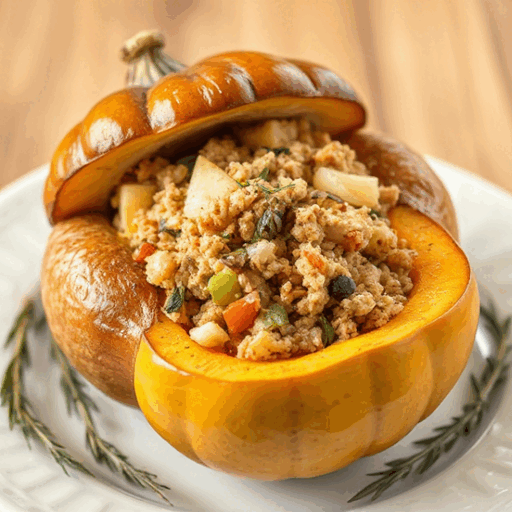What are the Collagen-rich foods?
Collagen is a body-produced fibrillar protein that gives elasticity and…

Our bodies and minds are deeply connected, more than we often realize. Emotions don’t just affect our mental state—they leave physical imprints on our bodies, influencing the health of our organs. From the kidneys to the heart, each organ has an emotional tie, and understanding these connections can help us take better care of ourselves.
When we don’t address emotional imbalances, they can manifest as physical discomfort, chronic pain, or even illness. Let’s explore how emotions impact different organs and why emotional care is vital for physical health.
1. Fear Impacts Kidney Health and Filtration
Fear is a natural emotion, but when it becomes chronic, it can affect the kidneys, which play a critical role in filtering waste and regulating fluid balance in the body.
Effects of Fear on the Kidneys:
Impaired Filtration: Chronic fear triggers the release of stress hormones like cortisol, which can constrict blood vessels and reduce kidney function.
Water Retention: Fear and anxiety can cause the body to retain water, leading to bloating and imbalances in electrolytes.
Lower Back Pain: Kidney-related tension often manifests as discomfort in the lower back.
How to Heal:
Practice Grounding Techniques: Deep breathing, meditation, or yoga can help reduce fear and calm the nervous system.
Stay Hydrated: Support kidney function by drinking plenty of water.
Herbal Teas: Dandelion and nettle tea help flush toxins from the kidneys.
2. Worry Slows Digestion and Weakens the Stomach
Worry and overthinking tend to affect the stomach and spleen, the organs responsible for digestion and nutrient absorption.
Effects of Worry on Digestion:
Sluggish Digestion: Chronic worry can reduce stomach acid production, leading to bloating, indigestion, and nutrient deficiencies.
Weakened Immunity: A stressed digestive system struggles to absorb nutrients, weakening immunity over time.
Ulcers and Cramps: Excess stomach acid caused by worry can lead to ulcers or cramping.
How to Heal:
Eat Mindfully: Avoid eating in a rushed or anxious state—slow down and focus on your meal.
Ginger and Peppermint Tea: Both herbs calm the stomach and support digestion.
Journaling: Writing down worries can provide mental clarity and reduce overthinking.
3. Stress Increases Strain on the Heart
Stress is often referred to as the “silent killer” because of its profound impact on heart health. The heart is highly sensitive to emotional distress, which can affect blood pressure and circulation.
Effects of Stress on the Heart:
Increased Blood Pressure: Stress hormones cause blood vessels to constrict, raising blood pressure.
Inflammation: Chronic stress triggers inflammation, which can lead to heart disease.
Irregular Heartbeat: Anxiety and panic attacks can cause palpitations, leading to a racing heart or skipped beats.
How to Heal:
Deep Breathing Exercises: Slow, controlled breaths can lower heart rate and blood pressure.
Magnesium-Rich Foods: Leafy greens, nuts, and seeds help relax the heart and muscles.
Laughter and Connection: Spend time with loved ones to lower stress hormones naturally.
4. Anger Affects the Liver’s Ability to Detoxify
Anger, frustration, and resentment often take a toll on the liver, which is responsible for detoxification and hormone regulation.
Effects of Anger on the Liver:
Blocked Energy Flow: In traditional Chinese medicine, anger is believed to cause “liver stagnation,” disrupting energy flow.
Toxin Build-Up: Emotional stress can impair liver function, slowing detoxification.
Hormonal Imbalances: A sluggish liver struggles to process hormones, leading to mood swings and fatigue.
How to Heal:
Detoxifying Foods: Incorporate turmeric, beets, and leafy greens to support liver detox.
Exercise to Release Tension: Physical activity helps release pent-up anger.
Emotional Release Practices: Journaling, therapy, or even screaming into a pillow can help let go of frustration.
5. Grief Reduces the Efficiency of the Lungs
Grief and sadness are deeply tied to the lungs, which are responsible for respiration and energy distribution.
Effects of Grief on the Lungs:
Shallow Breathing: Grief often causes shallow breathing, reducing oxygen intake and energy levels.
Weakened Immunity: The lungs are linked to the immune system, and suppressed grief can lower defenses.
Respiratory Issues: Prolonged sadness can manifest as coughing, asthma, or chest tightness.
How to Heal:
Breathing Exercises: Practice deep belly breathing to improve lung capacity and release tension.
Herbal Support: Peppermint and eucalyptus tea can open airways and ease breathing.
Allow Yourself to Grieve: Express emotions through crying, talking, or writing to release bottled-up feelings.
Take Care of Your Emotions to Protect Your Body
Your emotions are more powerful than you may realize, and their effects ripple through your body. By tending to your mental and emotional well-being, you also nurture your physical health.
Key Steps to Balance Emotions and Heal the Body:
Practice Mindfulness: Spend time each day meditating, journaling, or reflecting.
Move Your Body: Physical activity helps release stored emotional tension.
Prioritize Sleep: Rest is essential for emotional processing and physical repair.
Eat Anti-Inflammatory Foods: Support organ health with whole, nutrient-dense foods.
Build Emotional Awareness: Learn to recognize emotional patterns and work through them instead of suppressing them.
Emotional Healing for Physical Health
Your body responds to emotions in ways that shape your health and vitality. Fear, worry, stress, anger, and grief all have physical consequences, but the good news is that addressing these emotions can promote healing.
By listening to your body, supporting your organs with nourishing foods, and adopting emotional wellness practices, you can create a foundation for true health—from the inside out. Remember, taking care of your emotions isn’t just self-care; it’s an act of self-preservation.
Collagen is a body-produced fibrillar protein that gives elasticity and…
copyright © 2025 Anti-Inflammatory Approach. All rights reserved. Unauthorized reproduction, distribution, or use of any content, including text, images, recipes, or other materials on this website, is strictly prohibited without prior written permission. This website’s content is provided for informational purposes only and does not constitute medical or professional advice.


This $1 anti-inflammatory cookbook is packed with simple, tasty recipes to reduce inflammation and improve energy. Don’t miss out—get it now on Amazon!